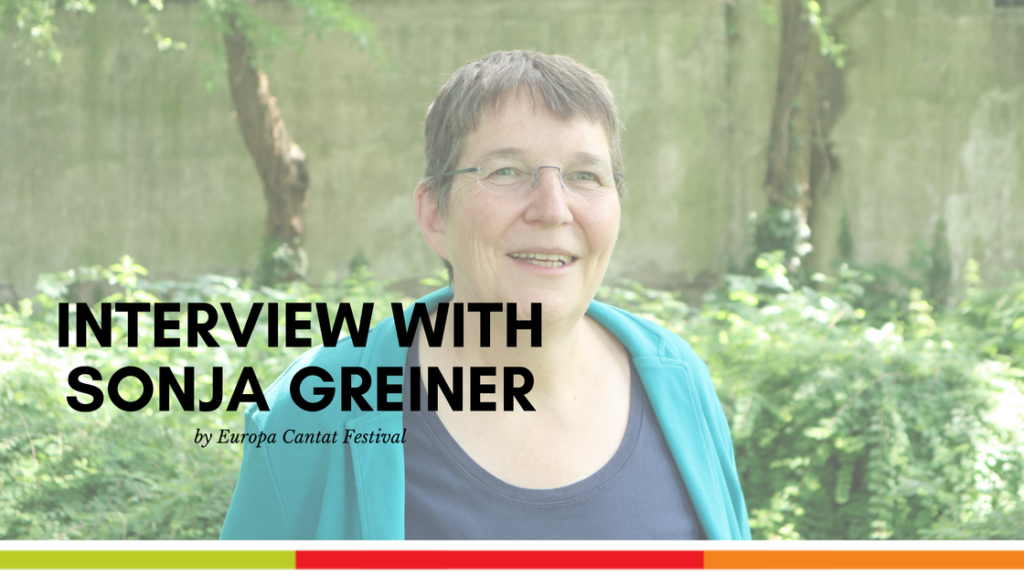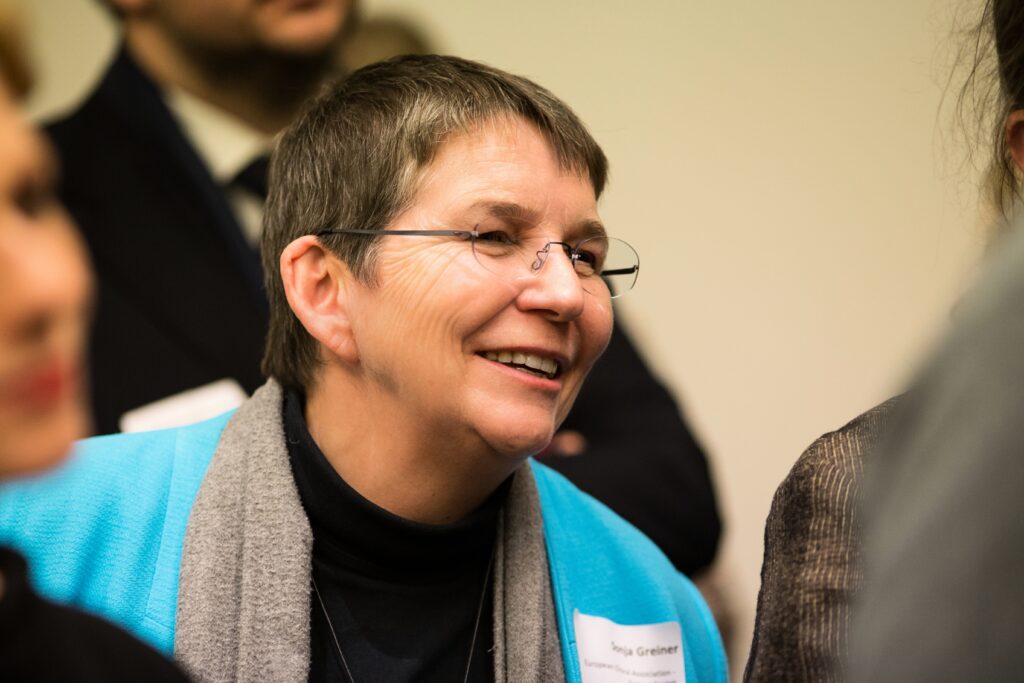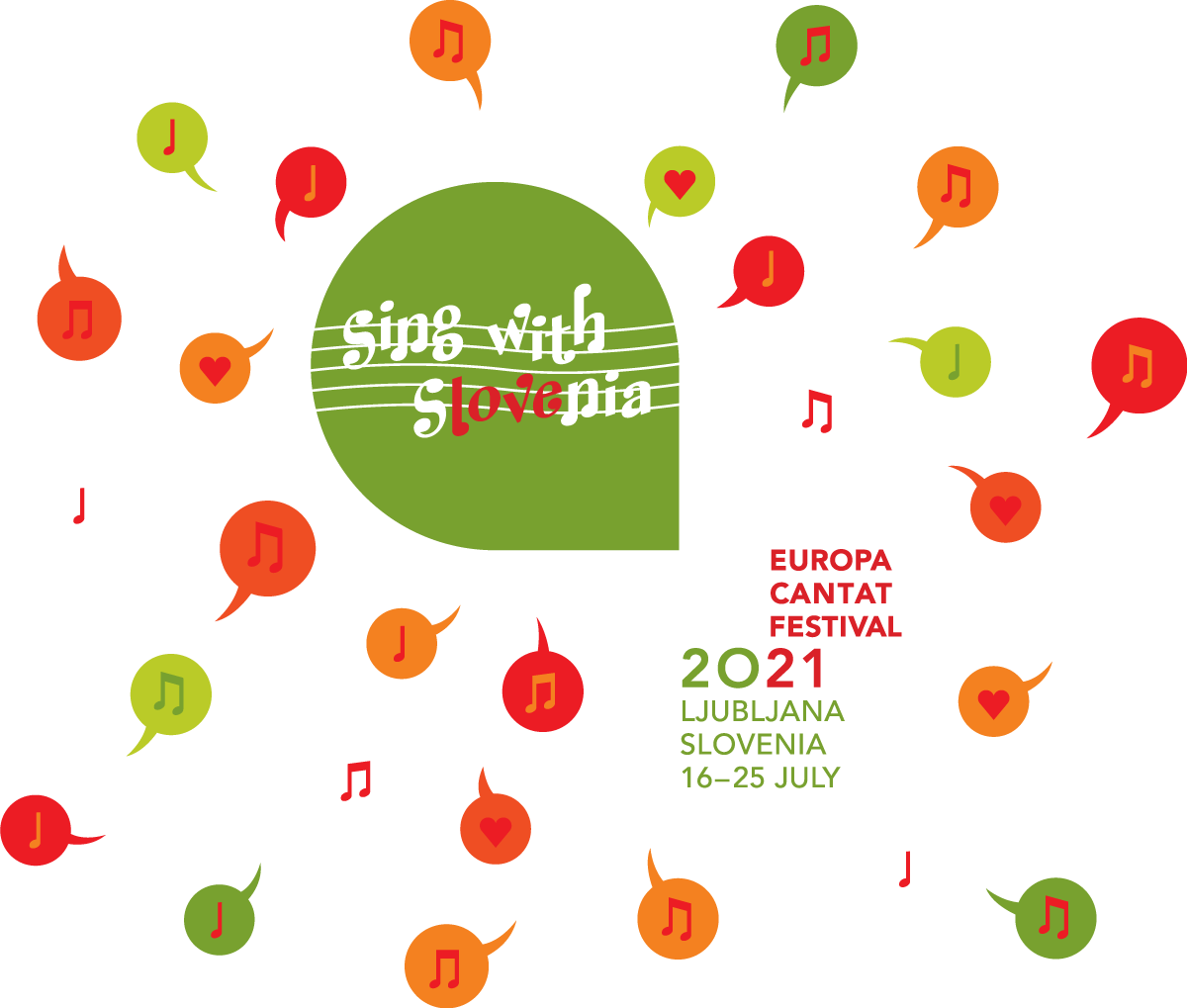
”Many choirs became very creative during the pandemic!”
Interview with Sonja Greiner, Secretary General of the European Choral Association ECA-EC.
1. As Secretary General of the European Choral Association, you have an overview of the situation in the choral world. In what way did the pandemic change it?
We cannot say for certain what will be the mid-term and long-term impact on the choral world across Europe. We have to point out that the situation differs from country to country: in some countries or regions, choirs have been able to rehearse and perform more than in others during the last 12 months. We can already say that some choirs have not been able to rehearse or perform for many months, some choirs have lost their members, some lost a lot of income and had difficulties covering their expenses, while others were no longer able to pay their conductors and had to stop activities or close down altogether. In some countries, singing at school was banned for many months or the entire year, while in others children up to a certain age were and/or are allowed to sing together. On the other hand, many choirs became creative during the pandemic (see question 3).
During the past 12 months, most national and international choral events had to be cancelled and the situation continues to be difficult in 2021. Event organisers have to be extremely flexible and have to adapt their plans regularly.
Many conductors have lost a part of their income and many musicians working in the choral world (soloists, pianists and instrumentalists) have also been affected – as are all those who sell products to choirs (publishers, producers of concert clothing or music folders, travel agencies organising choir trips, etc.).
How strong these effects will be and for how long they will last will also depend on how the pandemic will develop in the coming months. It will be just as important how the governments in different countries will be able to help and support those suffering from the consequences of lockdown, especially the self-employed musicians who often do not fit the public support programmes.
2. What are your biggest concerns and do you believe choral music is threatened in any way?
One of our biggest concerns is that the image of choral music/collective singing has suffered. Media and partly public authorities have spread the message that “singing is dangerous”, which is incorrect. Singing alone and singing together with others is actually good for your health and beneficial in many other ways. We have to make it clear that the virus is dangerous, not singing as such. Of course, when singing together with others, you have to be really careful so that you do not spread the virus, but this also applies to many other group activities where people breathe heavily, speak loudly or laugh a lot. As European Choral Association – Europa Cantat, we are planning to launch a campaign on the benefits of (collective) singing in the coming months to highlight its positive effects.

One of our biggest concerns is that the image of choral music/collective singing has suffered. Media and partly public authorities have spread the message that “singing is dangerous”, which is incorrect. Singing alone and singing together with others is actually good for your health and beneficial in many other ways. We have to make it clear that the virus is dangerous, not singing as such.
3. Do you have any evidence proving that choirs can still live and work regardless of all the obstacles the pandemic has brought?
Yes, there are many examples. Some choirs are dealing with the situation the best they can, rehearsing with the help of technical tools and programmes, and they even managed to find new members although they are unable to meet in person. More and more choirs are producing virtual choir videos to stay in touch with their audience and try to give their singers a purpose and a sense of belonging. In the summer, many choirs started rehearsing outside or in unusual venues, such as car park buildings, warehouses, agricultural buildings, etc., or organised rehearsals in cars.
There has also been a boom in the development of digital programmes that allow musicians to rehearse and perform together online (not muted as in most video conferencing programmes). Lately, many choirs have been rehearsing using Jamulus, Soundjack or SonoBus, and in European Choral Association – Europa Cantat, we support digital-stage.org.
4. How does it feel to be back in Ljubljana? 🙂
It feels great! During the preparations for the festival, I usually travel to the festival city around four times a year. This time, more than 12 months have passed since I last came here. Unfortunately, I have not left my hometown for months, and it does me good to see something different, other colours, different light, and a city centre with open shops, it is so important and good to personally meet with the team. It is much easier to hold countless discussions and make difficult decisions when you are sitting together in a room, even at a distance and wearing masks, than if you have to conduct a Zoom meeting.
5. Is Ljubljana as a city and as an organiser ready to host the EC Festival?
I can say that the team at JSKD has been working extremely hard and with great professionalism to adapt over and over again to different conditions and circumstances. We have been working on different scenarios together this week with the aim of adapting the festival to the different possible situations. And we have worked on concepts that will make it possible to organise safe events if the situation in July 2021 is good enough for people to carefully meet and interact with each other. At the same time, we are fully aware that we will have to carefully monitor the situation and the government decisions in the coming months.
Ljubljana is a wonderful city, it has the right size, great venues, many open-air spaces of different sizes and an infrastructure that offers everything we need for such an event. Most of all, we are thrilled to see the interest singers and conductors from Ljubljana and from other parts of Slovenia have shown.
Sonja Greiner is the Secretary General of the European Choral Association – Europa Cantat (ECA-EC) and a member of the Board of the World Youth Choir Foundation.
With her German father and French mother, she spent several years of her childhood and youth in Peru and Ecuador, Latin-America. After studying English, French and Spanish in Germany, and doing two years of teacher training, she first became the manager of the International Chamber-Choir Competition and the festival Musica Sacra International in Marktoberdorf, Germany, at the beginning of the 90ies. She later became deputy Secretary General and then Secretary General of the ECA-EC since 2011.
Sonja Greiner was a member and Treasurer of both the European and the International Music Council between 2000 and 2013 and was elected Honorary Member of the International Music Council in 2015.
